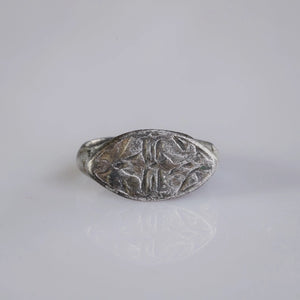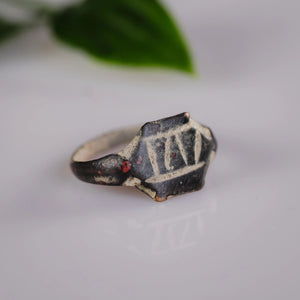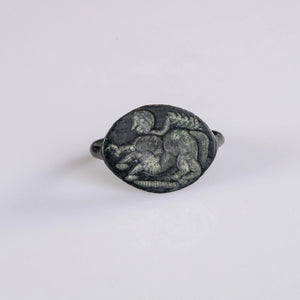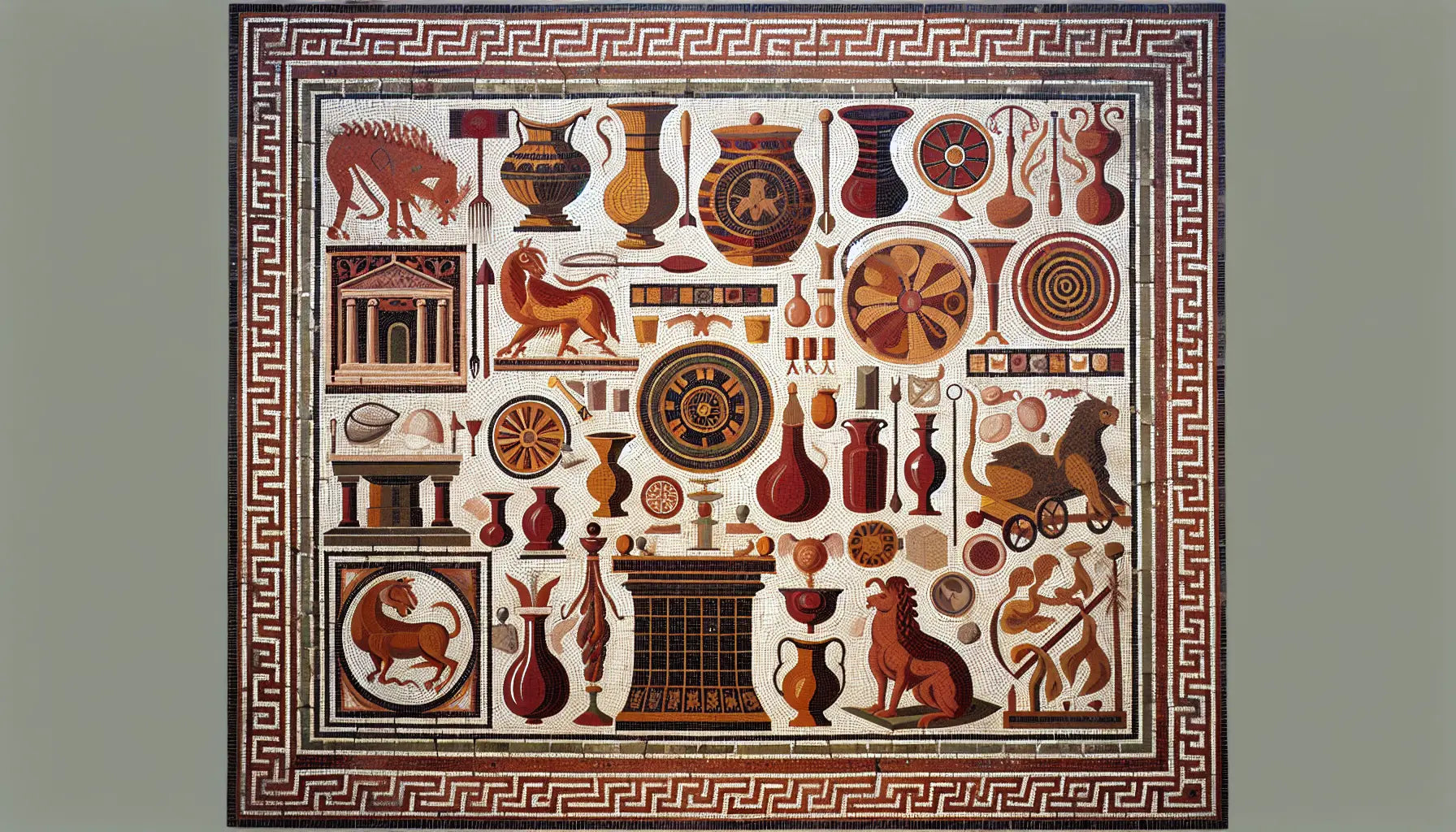Interesting facts
Why Did the Romans Hate Christianity?
Imagine living in the vast and powerful Roman Empire, a realm that stretched across continents and was known for its intricate administration, impressive engineering, and a rich tapestry of cultural and religious traditions. Within this environment, a new faith emerged—Christianity. But rather than being embraced, Christianity was often met with hostility and suspicion by the Romans. Why was this the case? The reasons go deeper than mere religious differences; they intertwine with politics, social expectations, and the very essence of Roman identity.
The Roman Religious Landscape: Polytheism and Tradition
Roman religion was polytheistic, meaning it involved the worship of many gods and goddesses. This system was deeply embedded in Roman culture, politics, and daily life. From Jupiter, the king of the gods, to lesser deities associated with specific places or activities, the Romans believed these divine figures maintained the balance of the world and protected the state. Religious rituals and ceremonies, from sacrifices to festivals, were not just acts of personal devotion but communal responsibilities. They were thought to ensure the favor of the gods, the prosperity of Rome, and the stability of the empire.
The Romans were proud of the antiquity and continuity of their religious practices. Their gods and rituals formed a shared cultural heritage that united the diverse peoples within the empire. Rejecting these traditions was often seen as a rejection of Roman identity itself. The rich mythology and rituals had been woven tightly into the fabric of everyday life. For many Romans, to abandon these gods was akin to tearing apart the very soul of their society.
This network of gods and ceremonies was more than spiritual guidance; it was the glue holding together a vast, diverse empire. Each festival, sacrifice, and prayer served as a public affirmation of loyalty—not just to the deities, but to Rome itself. When legions marched, priests prayed for victory; when crops were sown, offerings ensured a bountiful harvest. It was a system where religious observance was inseparably linked with the empire’s fate.
The Roman religious traditions and their rich tapestry intertwined with the political fabric of the empire were essential. For those interested in discovering more about this complex history, the Aurora Antiqua store offers unique insights through its selection of artifacts. Exploring collections, especially the highlights like the 'Auriga' - Roman Silver Intaglio Ring (1st–3rd CE), provides a tactile connection to the depths of Roman religious and cultural history, enriching your understanding of an era where these customs were regarded as the very essence of Roman identity.

Christianity’s Exclusivity: A Challenge to Roman Religious Pluralism
Christianity, however, was fundamentally different. It was a monotheistic religion, proclaiming belief in a single, all-powerful God and denying the divinity of all other gods. To Roman eyes, this exclusive monotheism was strange and even threatening. The Christian refusal to worship the Roman pantheon was not merely a personal spiritual choice—it was perceived as a direct challenge to the religious fabric that held the empire together.
Unlike the flexible Roman approach, where one might honor many gods including foreign ones, Christianity demanded exclusive allegiance. This absolute loyalty was unsettling for Romans who valued religious integration as a means of social cohesion. The Christian message carried an implicit rejection of traditional Roman gods, and by extension, the communal traditions built around them. It questioned the very order Romans had trusted for centuries.
Moreover, Christians declined to participate in state rituals that were considered vital for the welfare of Rome. For instance, the emperor was often worshipped as a divine figure; loyalty to Rome and the emperor was interwoven with religious observance. Christians’ refusal to offer sacrifices or prayers to the emperor’s divine spirit raised alarms about their political loyalty. To Romans, refusing to honor the emperor was akin to treason.
This exclusivity made Christianity appear not only as religious dissent but a form of social defiance. The surrounding Roman citizens and officials couldn’t easily fit Christians into their familiar categories of worship and civic behavior. This ambiguity bred suspicion and sometimes fear.
Religion and Politics: Loyalty to Rome at Stake
In the Roman mind, religion and politics were inseparable. The gods protected the state, but only as long as proper rituals were observed. This was not about arbitrary ceremonies but about ensuring the stability of an empire that depended on shared values and social cohesion.
The Christian rejection of Roman religious practice was seen as more than impiety—it was understood as political disloyalty. If the gods were angered by the absence of worship, the empire would suffer calamities. Worse still, Christians gathered in secret, which fueled rumors and suspicions of conspiracies or sedition.
This entanglement meant that religious nonparticipation wasn’t viewed as a private act of conscience but as a public threat to order. For Romans, religion underscored the legitimacy of the emperor’s rule and the peace of the realm. When Christians stepped outside this religious-political framework, they appeared as a disruptive force with unclear loyalties.
Emperors and leaders depended on visible public unity. Rituals, spectacles, and sacrifices were part of this cohesion, and the absence of Christians in such shared moments marked them as outsiders. In a world where public identity and civic harmony were paramount, this exclusion was deeply unsettling.
Examining the intricate balance between religion and politics in ancient Rome, the exclusion of Christians from public unity reflects the complex dynamics that defined this era. As vividly captured in artifacts from that period, such as those available from Aurora Antiqua, one can gain insight into a time when religious unity was synonymous with political allegiance. The image of Roman artifacts, including items like a Roman Silver Intaglio Ring, encapsulates a moment at which faith, identity, and power intersected.
What were some specific accusations against Christians that fueled Roman hostility?
Among various accusations grounded in suspicion and fear, Christians were often suspected of atheism due to their rejection of the traditional pantheon. Secrecy in their gatherings led to false and wild claims, including rumors of cannibalism and conspiracies perceived as threats to the Roman order. These accusations reflected broader Roman concerns about social stability and religious norms.
Suspicion and Social Tensions
Adding to the mistrust, Christians were often accused of atheism and subversive acts. The secrecy of their meetings led to wild rumors, such as claims of cannibalism based on the Eucharistic rites. These false accusations reflected the wider Roman fear of cults perceived as destabilizing forces to the community and religious norms. Perceived as undermining the traditional order, Christians faced an uphill battle in gaining acceptance within Roman society.
Christians’ refusal to participate in public festivals and their distinct communal gatherings isolated them socially. To many Romans, Christians seemed secretive and even subversive. Accusations of bizarre or immoral behavior, though often baseless, spread easily, intensifying hostility.
The fact that Christianity was a new religion without the ancient pedigree of other groups, such as the Jews, contributed to mistrust. Jewish communities, although occasionally also persecuted, were generally better understood due to their long history within the empire.
It did not help that early Christian meetings were often behind closed doors. In an age where visible participation in communal life was expected, private worship raised eyebrows. Rumors of strange rites, cannibalistic claims stemming from misunderstandings of the Eucharist, or moral accusations compounded fears.
Some Romans accused Christians of atheism—not believing in any gods at all—because they rejected the traditional pantheon. Others saw them as potential rebels who undermined social norms and order. These fears were often amplified during times of political stress or economic hardship, when scapegoating a minority could pacify public anxieties.
This social tension also reflected a deeper cultural gap. Christianity challenged traditional Roman values, including attitudes toward gender, social hierarchy, and loyalty. For example, Christianity’s encouragement of caring for the poor and its inclusive communities could be seen as critiques of Roman elite privilege and social structures.
Imperial Crisis and the Rise of Persecutions
During times of internal or external crises, emperors often redoubled their efforts to promote traditional Roman religions as a means of rallying public support and restoring order. This sometimes led to intensified persecution of Christians, who were seen as undermining imperial unity.
For example, Emperor Nero famously blamed Christians for the Great Fire of Rome in 64 AD, initiating brutal persecutions that further entrenched their outsider status. While not all emperors persecuted Christians consistently, the pattern of suspicion and crackdown recurred whenever the empire faced stress.
These persecutions were sometimes localized and sporadic, but at other times grew into empire-wide campaigns. Christians were accused of impiety, refusal to honor the emperor, and conspiracy. Punishments ranged from fines and imprisonment to torture and execution.
Despite these harsh measures, Christianity continued to grow, suggesting that persecution often strengthened internal community bonds rather than eradicating the faith. In fact, martyrdom became a powerful testimony to Christian believers, inspiring courage and dedication.
The pressures of maintaining imperial unity amid growing social and religious tensions significantly shaped Roman policy toward Christians. The state's response was as much about political survival as religious concerns.
Julian the Apostate and the Attempt to Restore Paganism
One particularly notable emperor was Julian, known as the Apostate because he renounced Christianity and sought to revive traditional pagan worship during his reign in the mid-4th century. Julian viewed Christianity as a destructive force that weakened the empire’s values and social structures. His efforts to restore paganism were not purely religious but deeply political—he wanted to revive what he saw as the foundational pillars of Roman strength.
Julian’s reign was short, but his resistance to Christianity symbolizes the broader tensions between old and new faiths within the empire.
He promoted pagan philosophy, rebuilt temples, and tried to reduce Christianity’s influence in government. Julian argued that Christianity’s focus on the afterlife distracted citizens from their duties to the state and weakened societal bonds. His policies sought to reverse the Christianization of the empire, but he faced significant opposition and his death ended the effort abruptly.
This episode illustrates how religion was deeply entangled with imperial power and legitimacy. The clash represented not just faiths but competing visions for Rome’s future identity and stability.
Christianity’s Social Impact and Its Threat to Roman Values
Christianity’s emphasis on equality before God, care for the poor, and spiritual salvation introduced new social ideas that sometimes clashed with Roman hierarchies and traditions. While many Romans admired Christian charity, the religion’s differing morals and refusal to conform to social norms made it a disruptive force in some eyes.
The Christian focus on an afterlife and spiritual kingdom arguably shifted attention away from civic duties and loyalty to the Roman state. This undermined established notions of citizenship and public service.
For instance, Christians refused to participate in the gladiatorial games or other public entertainments associated with Roman culture, viewing them as immoral. Their refusal to swear oaths or serve in certain civic roles was viewed as suspicion-worthy by authorities.
On the other hand, Christianity’s message of hope and compassion attracted many who felt marginalized in Roman society, such as slaves, women, and the poor. The early church offered a community of support and moral guidance not found elsewhere.
This tension between Christian ideals and Roman social order contributed to ongoing suspicion. Christians were not merely a religious minority; they represented an alternative way of life that challenged deeply entrenched social and political norms.
The Long Path to Acceptance
Despite persecution, Christianity continued to grow, attracting followers across social classes. Over time, its message of hope and moral clarity resonated with many. Eventually, Christianity became the empire’s dominant religion, especially after Emperor Constantine’s conversion in the early 4th century and the Edict of Milan in 313 AD, which granted Christians legal tolerance.
Constantine’s embrace of Christianity radically transformed its status. No longer a fringe sect, Christians began to influence imperial policies and society. Churches were built, Christian leaders gained political clout, and pagan worship gradually declined.
This remarkable transformation from a hated sect to the state religion underscores the complex relationship between religion, politics, and identity in the Roman Empire.
The shift was neither swift nor uniform. Paganism survived for centuries, and many Romans resisted Christian changes. Yet, the empire’s heart had begun to beat with a new faith at its center.
A Moment of Reflection: What Can We Learn?
Looking back at Roman hostility toward Christianity, we see not just ancient religious conflict but a timeless story about how societies react when confronted with radical difference. The Romans perceived Christianity as a threat to their way of life, their gods, and their empire’s future. Christianity’s exclusivity and refusal to partake in communal rituals unsettled a system that depended on religious unity for political stability.
This historic tension reminds us that faith and power often intermingle in complex ways, influencing people’s acceptance or rejection of new ideas.
It also illustrates the challenges that come when deeply held traditions are questioned. New beliefs will often clash with old structures—sometimes violently—before they find a place.
Christianity and the Roman Empire: A Turning Point in History
Through this lens, it becomes clearer why Christianity was not merely a religious curiosity to the Romans but a profound challenge to the empire’s core. The reluctance and occasional hatred they showed stemmed from a vital concern for preserving political loyalty, social order, and cultural identity.
Interestingly, one way to delve deeper into these historical dynamics is through artifacts from that era. At Aurora Antiques, you can explore treasures that reflect this fascinating history. Wearing a piece like the 'Auriga' - Roman Silver Intaglio Ring (1st–3rd CE) allows you to connect directly with the past, offering a tangible link to the era of early Christianity and the Roman Empire.
Connect with the Past
Shop NowFrequently Asked Questions About Romans and Christianity
Did all Roman emperors hate Christianity?
Not necessarily. While some emperors fiercely persecuted Christians, others were more tolerant or indifferent. Constantine’s acceptance marked a turning point, although hostility lingered in some areas for years.
Why did Christians refuse to worship the emperor?
Christians believed in one God and rejected the deification of any human. Worshipping the emperor conflicted with their religious beliefs and meant compromising their faith.
Was Christianity popular among all social classes?
Yes, Christianity attracted followers from various social backgrounds, including slaves, women, and the poor, who found in its message hope and community.
How did Roman religious rituals relate to politics?
Religious ceremonies were integral to maintaining Rome’s social fabric and were tied to the emperor’s legitimacy and the state’s well-being.
Closing Thoughts
The Roman Empire’s reaction to Christianity reveals the intertwined nature of faith, identity, and power. Far from a simple story of religious intolerance, it illustrates how new ideas can unsettle established orders and provoke complicated responses—fear, hostility, but eventually, transformation.
Recognizing these layers helps us appreciate the profound historical journey Christianity undertook and invites reflection on how societies today engage with difference and change. The story of Rome and Christianity reminds us how fragile yet vital social bonds can be—and how the courage to hold fast to belief can reshape the world.
Did all Roman emperors hate Christianity?
Not necessarily. While some emperors fiercely persecuted Christians, others were more tolerant or indifferent. Constantine’s acceptance marked a turning point, although hostility lingered in some areas for years.
Why did Christians refuse to worship the emperor?
Christians believed in one God and rejected the deification of any human. Worshipping the emperor conflicted with their religious beliefs and meant compromising their faith.
Was Christianity popular among all social classes?
Yes, Christianity attracted followers from various social backgrounds, including slaves, women, and the poor, who found in its message hope and community.




